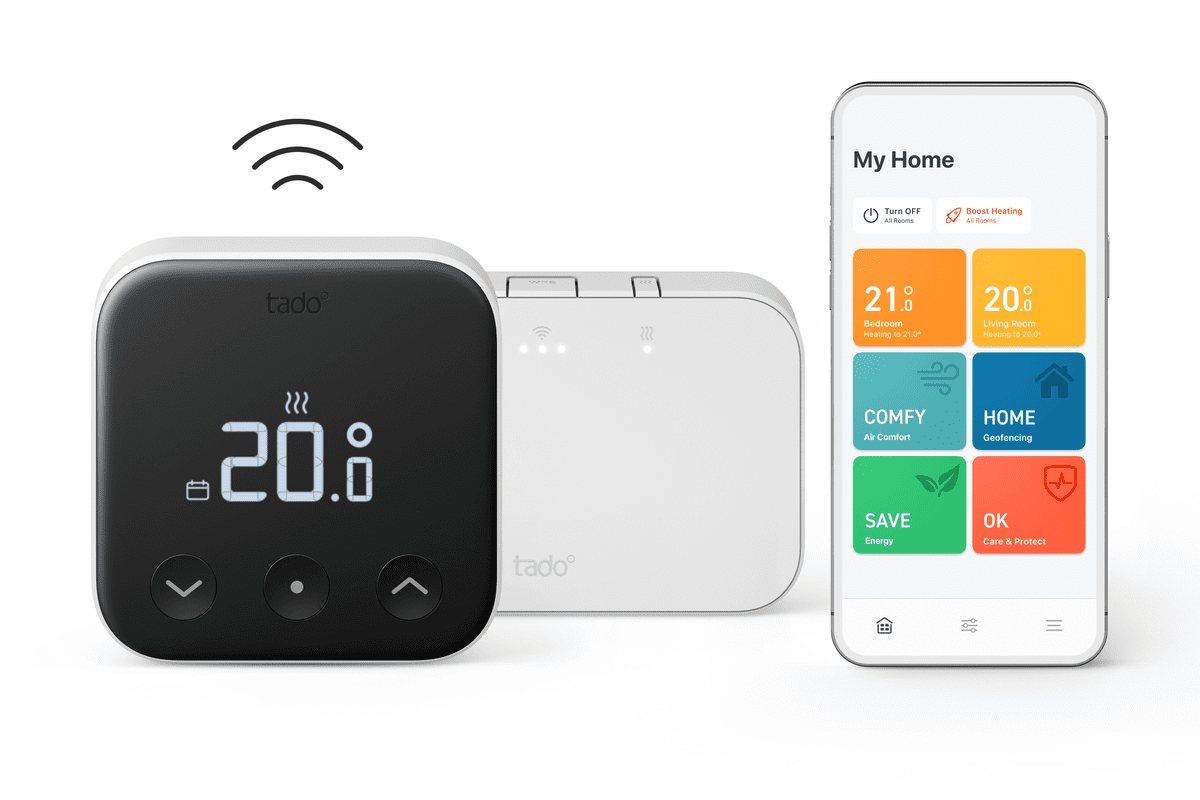Will Matter Make Smart Home Devices More Energy-Efficient and More Environmentally Friendly?
Energy management is being added to Matter, the smart home protocol supported by an increasing number of manufacturers. Matter 1.3 adds various smart home energy management features, but does this support for smart thermostats and smart radiator valves make the standard more energy efficient and environmentally friendly?

Please note: This page may contain affiliate links. Read our ethics policy
One of the most common rationales for buying smart home gear is to save money on energy. Using as little power as possible to improve efficiency keeps bills down, and is the driving force behind the sale (and contractual imposition in some regions) of smart meters.
Energy management is being added to Matter, the smart home protocol that is supported by an increasing number of manufacturers. The latest iteration of Matter (1.3) adds various smart home energy management features, but does this support for smart thermostats and smart radiator valves make the standard more energy efficient and environmentally friendly?
What is Matter?
If you’re new to Matter, you might be wondering what it is, and what it does.
In the simplest terms, it unifies existing smart home protocols. It allows hardware from different manufacturers to communicate, and work together, with the aim of easing the smart home experience. This simplification starts with the setup of new IoT and smart home gear, and continues via your choice of smart speaker and hub app.
Interested in learning more? See our fill guide explaining the Matter smart home standard.
If you regularly buy smart home tech, there is a good chance some of it is already Matter-compatible. This might include smart thermometers, radiator valves, temperature sensors, and even a heat pump optimizer.
Energy Efficiency and Matter: Potential Benefits
Say you’re interested in adding energy control to your smart home. Your home is insulated, you use the most energy efficient appliances, but you want to improve efficiency further.
Matter 1.3, released in Spring 2024, features a number of controls that are intended to aid your management of smart home energy use.
- Centralized controls: unifying control of your smart home devices can improve energy consumption. Easy remote control over power states, for example, means you can switch off devices that aren’t being used.
- Smart scheduling: scheduling Matter-enabled tech (or using a Matter smart plug) so that it runs during off-peak hours or when energy is cheaper, can help optimize energy use.
- Energy-efficient heating: smart energy tech is beginning to adopt Matter, such as the Tado X range (below). With these devices in your home, schedules for heating can be configured, individual room temperatures set, and boilers managed more efficiently.

- Smart car charging: Matter 1.3 added support for EVSE (Electric Vehicle Supply Equipment), enabling electric vehicles to be charged remotely. Matter supports charging on/off, the speed of the recharging process, and can recharge up to the necessary level for a specified journey distance. Charging is then optimized based on these parameters. This could be useful both at home and with EV fleets used in business.
Environmental Impact of Matter
Matter can potentially play a part in improving the environment. Setting aside the manufacturing and shipping footprints, Matter has potential benefits:
- Reduced carbon footprints: as Matter is adopted and used to focus more on energy efficient homes, it can contribute to reducing emissions. Meanwhile, future iterations of the standard seem likely to include managing solar inverters.
- Conservation of resources: by reducing the number of powered-on devices, Matter can help to conserve natural energy resources. Also, Matter supports leak detection devices, which can be useful in conserving both water and energy (if the leaked water is heated).
- Waste reduction: there is some potential in reducing electronic waste, too, by emphasizing smart home hardware interoperability. However, this may be negated by the drive to switch to Matter, thereby discarding older smart home and IoT gear.
The Limits of Matter-compatible Energy Efficiency
While Matter can positively impact smart home energy efficiency, it does have some shortcomings.
- Adoption rate: the adoption of smart home technology generally has been comparatively slow beyond smart speakers and remote controlled lights. Widespread adoption of Matter is going to take some time.
- Device compatibility: even if devices are Matter-enabled, they may not meet the level of compatibility that householders expect from smart home tech. Other elements can play a part in this. In Europe and the UK, compatibility with the OpenTherm standard is key to smart energy management systems where control over home heating is required.
- Data privacy and security: while the Matter specification requires encryption and limited replication of your network’s Wi-Fi password, there are concerns about data sharing from connected devices and associated apps.
Why Energy Efficiency Matters in the Smart Home
The Matter smart home protocol could be the answer to improved energy efficiency in the home. It may also have applications in the workplace. However, take up of Matter-compatible smart home tech is likely to have an undesirable impact on electronic waste, even at the slow rate of adoption.
But the bottom line is this: Matter promises greater efficiency from smart home equipment and smart energy management gear, and embracing this improved control will reduce waste – not just energy, but in your wallet.
About the Author

Christian Cawley
Editor in Chief
Christian has been writing about technology since the mid 2000s, and has been published in numerous publications, online and in print. These include Android Magazine, Linux User & Developer, Linux Format, Tech Radar, Tom's Hardware, and Computer Active. From 2014-2024, he was a section editor and later deputy editor at MakeUseOf, before joining the Matter Alpha team. Christian enjoys old video games (mainly C64, Amiga, and MS-DOS), classic TV, and telling everyone who will listen that they should have a robot cleaner. When he's not shaping articles, Christian is a dad to three dancers, collects Lego, and is an avid home chef.